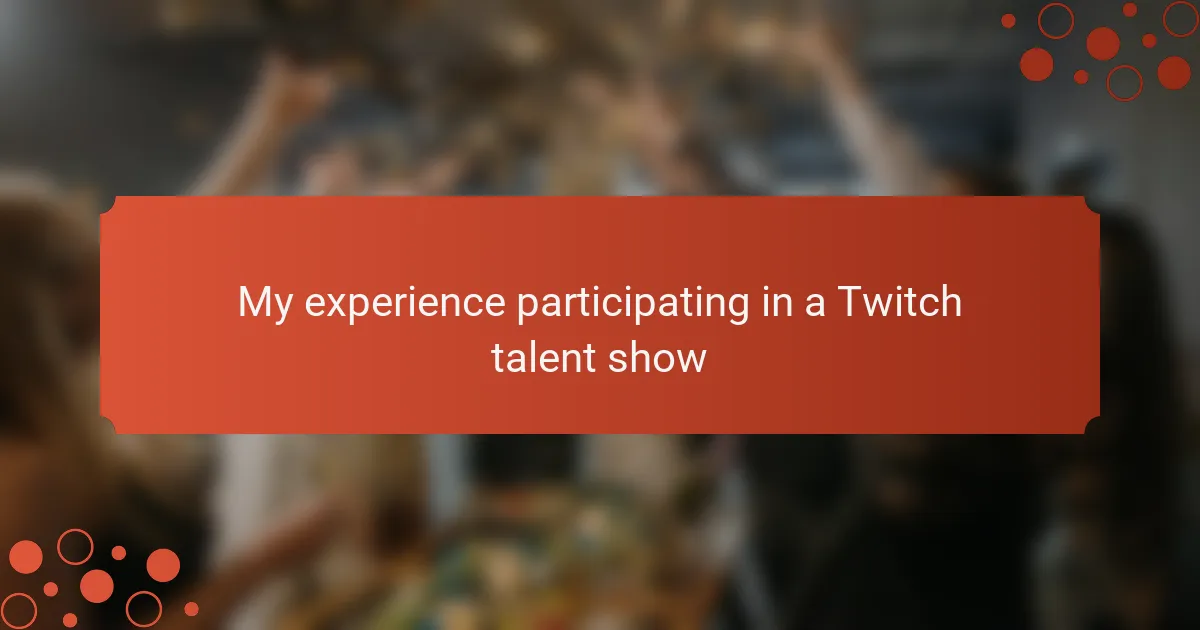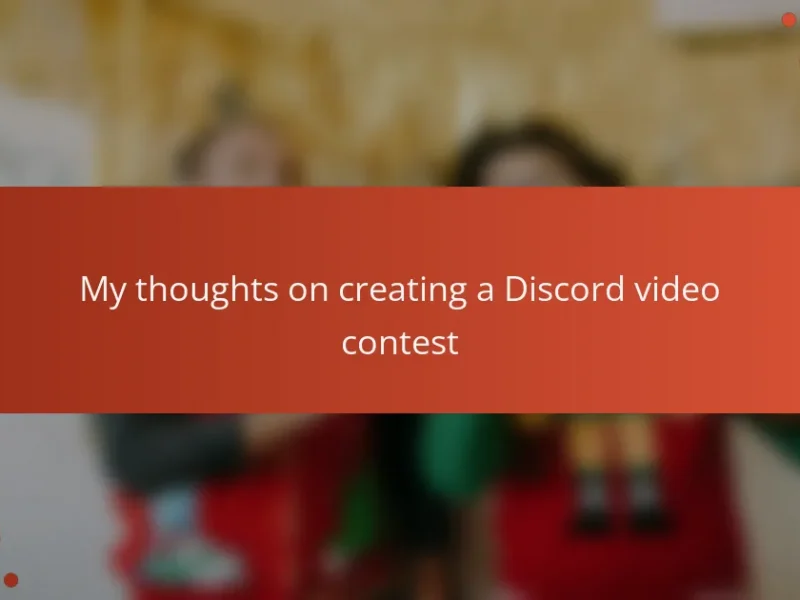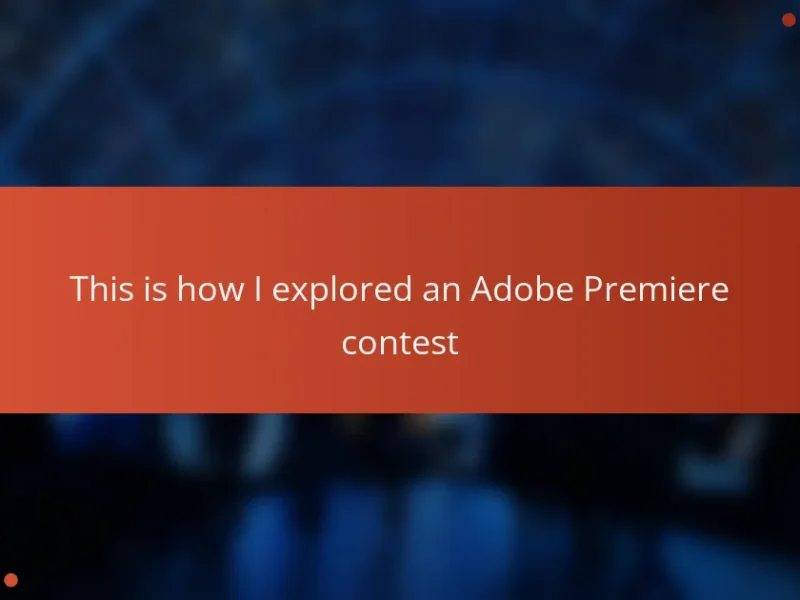Key takeaways
- Twitch talent shows combine live streaming and competition, creating a dynamic atmosphere with real-time audience interaction.
- Choosing a talent category that excites you can enhance your performance and foster a stronger connection with the audience.
- Effective audience engagement during performances can transform strangers into supporters, making the experience more rewarding.
- Managing nerves and technical challenges while adapting to live feedback are essential skills for success in competitions.
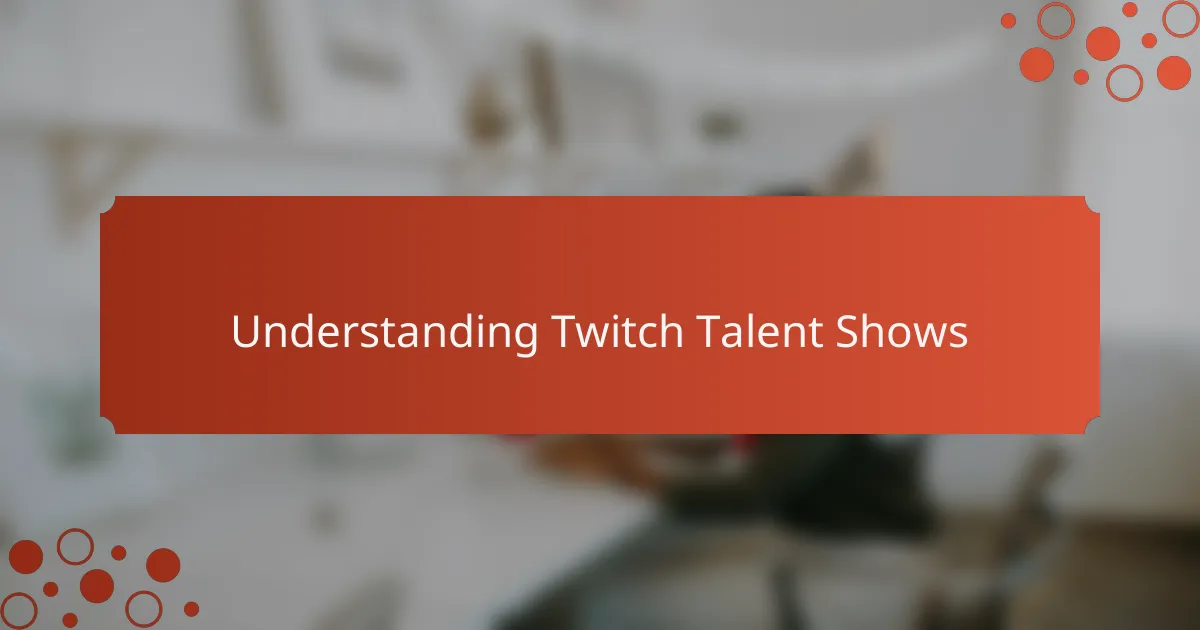
Understanding Twitch Talent Shows
Twitch talent shows are a unique blend of live streaming and competition, where participants showcase their skills in real-time to an engaged audience. I found it fascinating how the instant feedback from viewers can both boost confidence and heighten nerves—have you ever felt butterflies just knowing thousands are watching your every move? This dynamic creates an electric atmosphere that’s hard to replicate anywhere else.
What sets these shows apart, in my experience, is the community aspect. Unlike traditional contests, Twitch talent shows invite interaction through chat, making the audience feel like part of the event. I remember feeling genuinely supported when viewers cheered me on during my performance, turning strangers into a live, virtual crowd that mattered deeply.
Understanding the format also means grasping the diversity of talents showcased, from singing and drawing to gaming and storytelling. This variety kept me on my toes, constantly curious about what the next contestant might bring to the stage. It’s this unpredictability that, to me, makes Twitch talent shows so addictive and memorable.

Choosing Your Talent Category
Deciding which talent category to enter felt surprisingly challenging at first—I wondered, should I stick to what I know best or try something more daring? In my case, choosing a category that genuinely excited me made all the difference. When passion drives your choice, it shows in your performance and connects better with the audience.
I also learned that the competition can be fierce in popular categories like singing or gaming, but less crowded niches offer a unique chance to shine. Have you ever thought about how standing out sometimes means stepping off the beaten path? Picking a less common category gave me room to experiment and express myself without the pressure of direct comparisons.
Finally, considering your comfort with the category’s format matters a lot. For example, I wasn’t sure about live storytelling because it felt risky, but knowing I could engage with the chat made me confident enough to try. Thinking about how your skills match the live interaction helps you prepare mentally and enjoy the experience more.
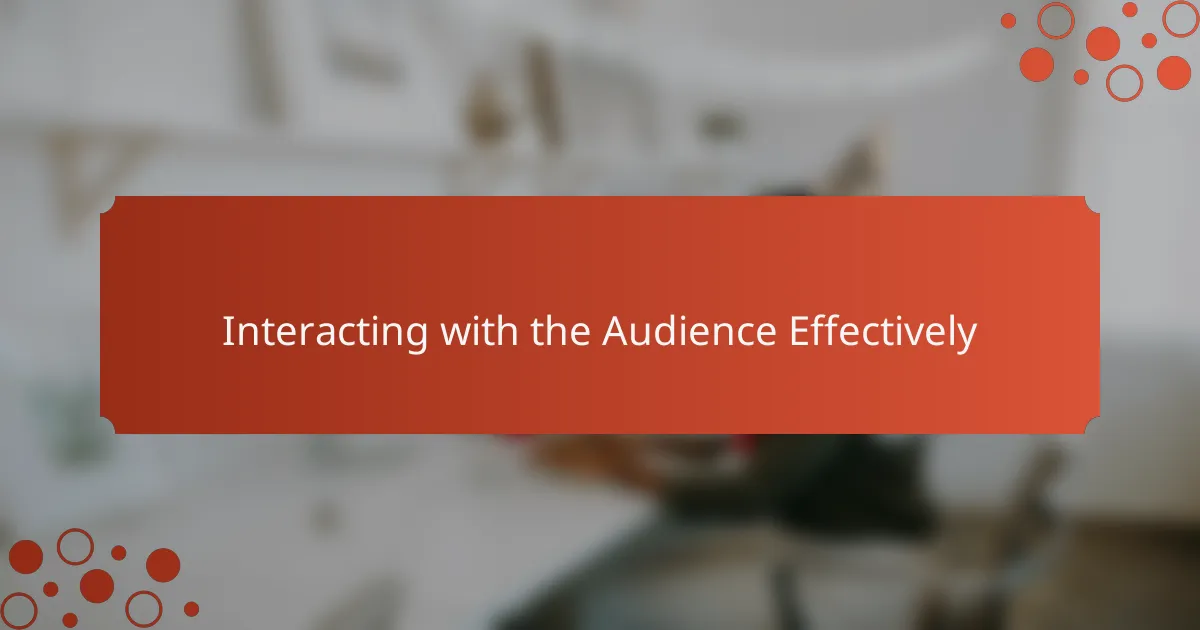
Interacting with the Audience Effectively
Interacting with the audience effectively was something I quickly realized could make or break my performance. When I responded to comments and questions in real-time, it created this amazing feedback loop that energized me and made viewers feel seen. Have you ever noticed how a simple “thank you” or a quick joke can transform strangers into supporters?
At one point, I answered a viewer’s question about my technique, which sparked a lively chat that distracted me just enough to relax and be myself. That moment taught me that genuine engagement often matters more than perfection—it’s about building connection, not just showcasing talent. I found that when I let down my guard, the audience responded with even more enthusiasm.
Still, balancing focus on the performance and chat moderation was tricky. I learned to prioritize meaningful interactions rather than trying to reply to every message. Choosing which chats to acknowledge kept me grounded and made those exchanges feel more real and rewarding. Isn’t it fascinating how quality beats quantity in building rapport online?
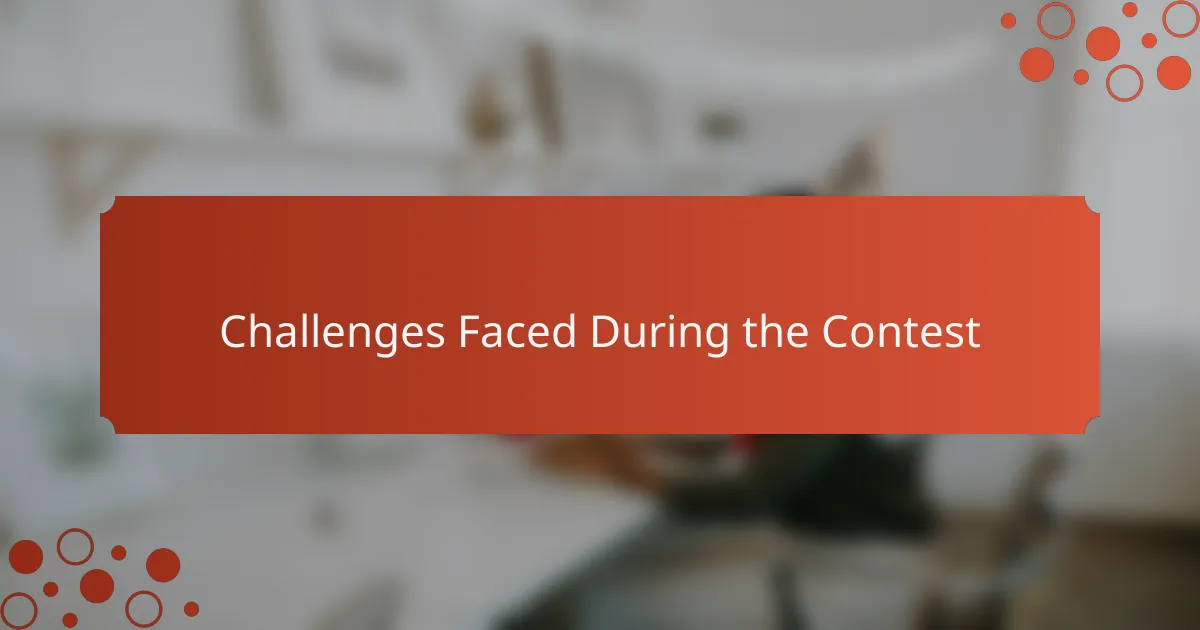
Challenges Faced During the Contest
The most unexpected challenge I faced was managing my nerves while performing live, knowing that any mistake would be instantly visible to thousands. Have you ever felt your heart race just before a big moment? That adrenaline mixed with anticipation was both thrilling and paralyzing, pushing me to find a balance between excitement and control.
Technical glitches also threw me off more than I expected—lags, microphone hiccups, and sudden stream drops created moments of panic. I remember one time when my audio cut out mid-performance, and I had to improvise without missing a beat. It taught me the importance of staying calm under pressure and having backup plans ready.
Finally, dealing with the unpredictability of live feedback was a challenge in itself. While positive comments lifted my spirits, occasional critical remarks tested my confidence. How do you stay focused when instant opinions flood your stream? For me, learning to filter constructive criticism from noise became a vital skill that helped me grow throughout the contest.
